Three international cooperation projects supported by Academics Without Borders
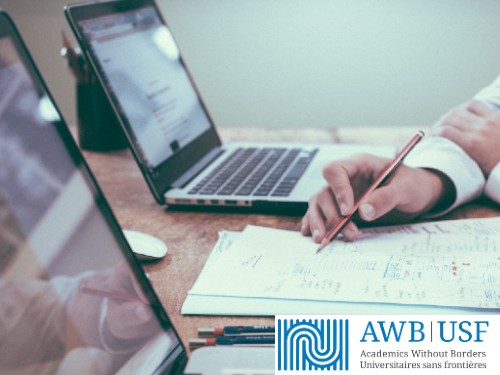
Three Université de Montréal projects were selected and supported by Academics Without Borders (AWB) since joining the organization in 2018. Led by the School of Public Health and the Faculty of Veterinary Medicine, these voluntary initiatives will offer contributions in structure and support to three universities located in Vietnam, Senegal and Morocco.
Establishment of formal collaboration for the creation of quality assurance system at Hai Phòng University of Medicine and Pharmacy in Vietnam
The university landscape in Vietnam is changing rapidly and is not immune to competition. Universities need to have a recruitment and retention strategy for retaining talent, and universities must improve the quality of their teaching as well as research. Universities are interested in applying for accreditation with a qualified organization, but first and foremost they need to demonstrate that they can deliver high quality educational programs.
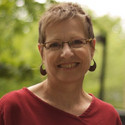
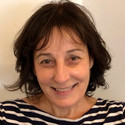 Lacking in resources to carry out such an exercise, the Quality Assurance Office at Hai Phòng University of Medicine and Pharmacy made a call for external collaboration. Professors from the School of Public Health, Lise Lamothe (pictured left) from the Department of Management, Evaluation and Health Policy and Béatrice Godard (pictured right), from the Department of Social and Preventative Medicine, were invited to share their expertise by collaborating with the University to put in place a quality assurance program. This project also includes the contribution of professor Daniel Reinharz from the Faculty of medicine at the Université Laval, who has had a long relationship with Hai Phòng University of Medicine and Pharmacy.
Lacking in resources to carry out such an exercise, the Quality Assurance Office at Hai Phòng University of Medicine and Pharmacy made a call for external collaboration. Professors from the School of Public Health, Lise Lamothe (pictured left) from the Department of Management, Evaluation and Health Policy and Béatrice Godard (pictured right), from the Department of Social and Preventative Medicine, were invited to share their expertise by collaborating with the University to put in place a quality assurance program. This project also includes the contribution of professor Daniel Reinharz from the Faculty of medicine at the Université Laval, who has had a long relationship with Hai Phòng University of Medicine and Pharmacy.
Contribution from the Faculty of Veterinary Medicine (FVM) of Université de Montréal to increase veterinary teaching capacity at the Inter-State School of Sciences and Veterinary Medicine (ISSVM) in Dakar, Senegal
Political changes of member states in the Inter-Stage School has resulted in a migration of faculty to the private sector, therefore affecting the quality of veterinary education offered to the student community. The Department of Biological Sciences and Animal Production, and particularly the theriogenology sector, are severely affected. The quality of diploma for 4th and 5th year students is also compromised because reproduction courses are no longer offered to them. However, these two years of study are crucial to learning the practice of veterinary medicine.
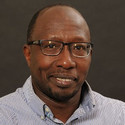 In this context, Mouhamadou Diaw, Associate Professor in the Department of clinical medicine in the FVM, seeks to improve the veterinary teaching capabilities at the ISSVM. He will ensure the teaching of theriogenology, which is necessary for training ISSVM students, and he will promote the development of expertise of University faculty in this subject area, in order to increase their ability to teach it, but also to develop theoretical courses, teaching materials and practical work for students.
In this context, Mouhamadou Diaw, Associate Professor in the Department of clinical medicine in the FVM, seeks to improve the veterinary teaching capabilities at the ISSVM. He will ensure the teaching of theriogenology, which is necessary for training ISSVM students, and he will promote the development of expertise of University faculty in this subject area, in order to increase their ability to teach it, but also to develop theoretical courses, teaching materials and practical work for students.
Contribution from the Faculty of Veterinary Medicine (FVM) of the Université de Montréal to increase veterinary teaching capacity at the Agronomic and Veterinary Institute (AVI) in Rabat, Morocco
The AVI, the only veterinary teaching institution in Morocco, has gained a considerable reputation in Africa and across the world for its quality veterinary training and scientific research. However, the number of professors at the institute has declined considerably because of governmental reform, also affecting the training offered to the entire student community, which represents a large pool of future veterinary teachers.
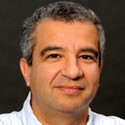 In response to this situation, Younès Chorfi, professor of nutrition of and animal production at the Department of Veterinary Biomedicine of the FVM, proposes to improve teaching and training capabilities of AVI students in three disciplinary areas. Professor Chorfi will help improve training in veterinary nutrition. He will call on Dr. Bertrand Lussier to complement the training in veterinary surgery and on Dr. Réjean Lefebvre to improve the training in theriogenology.
In response to this situation, Younès Chorfi, professor of nutrition of and animal production at the Department of Veterinary Biomedicine of the FVM, proposes to improve teaching and training capabilities of AVI students in three disciplinary areas. Professor Chorfi will help improve training in veterinary nutrition. He will call on Dr. Bertrand Lussier to complement the training in veterinary surgery and on Dr. Réjean Lefebvre to improve the training in theriogenology.
